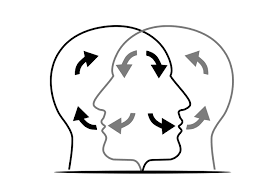 Whether I’m training a first-year university student or a nonprofit volunteer, one of the first things I address is a phenomenon called “language interference”. In the context of translation, what exactly does that mean?
Whether I’m training a first-year university student or a nonprofit volunteer, one of the first things I address is a phenomenon called “language interference”. In the context of translation, what exactly does that mean?
Simply put, language interference occurs when translators use incorrect words, expressions, syntax (word order) or punctuation just because that’s the way they would write it in their mother tongue.
Language interference happens BECAUSE we are bilingual... subconsciously our brain allows the error because it would not be an error in the other language. So the first step to avoiding language interference is to be aware of it.
I think part of the cause of language interference is that sometimes languages are learned in isolation. We are put into immersion classes and forbidden to speak our mother tongue as we learn the new language. While that approach can have benefits, there are also drawbacks.
When I was struggling to increase my fluency in French, my progress improved dramatically as soon as I allowed myself the freedom to consider English and French together. I drew comparisons and examined how each approached certain aspects of language. I tried to organize my brain into charts that matched up English and French words, expressions, and grammar.
Over time, I’ve learned to draw on that memory bank so rapidly that within a few seconds, my brain can have a whole conversation. While giving feedback to someone I’m training, that might sound like this:
- This student wrote “succeed my studies” in her French to English translation.
- It’s a perfectly logical error for a French person to make.
- That’s because in French the verb for succeed (réussir) does not require a preposition between it and the following noun.
- But in English, the verb “succeed” requires a preposition to connect it to a noun.
- So the student should have written “succeed in my studies” or “succeed at my studies”.
If I never allowed my brain to compare the two languages, I could easily fall into the trap of language interference when I’m translating. It’s very tempting to follow the original sentence too closely if you don’t stay alert.
In the next couple of weeks, we’ll be looking at some specific types of language interference. Stay tuned… it’s going to be interesting.
Have a great day!
Liane 🙂
www.LearnTranslation.com
www.NonprofitTranslation.org
